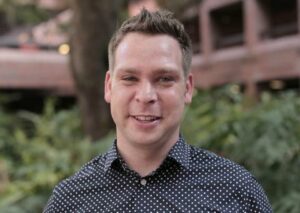Undergraduate Program Earns an “A” Letter Grade in New Report from the National Council on Teacher Quality
Gainesville, Florida—The undergraduate teacher preparation program at University of Florida has been recognized by the National Council on Teacher Quality (NCTQ) for its rigorous preparation of future teachers in how to teach reading, earning an “A” grade in NCTQ’s new report, Teacher Prep Review: Strengthening Elementary Reading Instruction.
The program is among just 23% nationwide and nine in Florida to earn an “A” from NCTQ for meeting standards set by literacy experts for coverage of the most effective methods of reading instruction—often called the “science of reading.”
National data shows that more than one-third of fourth grade students—over 1.3 million children—cannot read at a basic level. By preparing teachers in the methods that research has shown to work best, we can change these devastating results.
To evaluate the quality of preparation being provided, a team of experts at NCTQ analyzed syllabi, including lecture schedules and topics, background reading materials, class assessments, assignments, and opportunities to practice instruction in required literacy courses for undergraduate elementary teacher candidates at University of Florida. To earn an “A,” programs needed to meet NCTQ’s targets for coverage of the five core components of scientifically based reading instruction—phonemic awareness, phonics, fluency, vocabulary, and comprehension—and not teach more than three instructional methods that are unsupported by the research on effective reading instruction.
While some portion of children will learn to read naturally, over five decades of research have established the components of explicit, scientifically based reading instruction that help most students become successful readers. Research suggests that over 90% of children could learn to read if their teachers used instructional methods grounded in the science of reading. University of Florida is proud to be recognized among the programs ensuring that future elementary teachers enter the classroom equipped with the knowledge and skills they need to help students become strong readers.
“The Bachelor of Arts in Elementary Education at UF provides students with unique opportunities to work alongside some of the top researchers in the field of education who are developing new, innovative teaching strategies to enhance the learning of all students that they will encounter in their professional careers,” said Timothy Vetere, program coordinator. “From the very first semester of the program, our students get the chance to implement these cutting-edge strategies under the supportive mentorship and guidance of some of the best teachers and faculty in our area.”
Faculty at UF prepare the next generation of educators to deliver exceptional classroom experiences for all children. Students who complete the program are eligible for professional certification in Elementary Education with both Reading and English for Speakers of Other Languages (ESOL) endorsements. The program culminates with a teacher-inquiry project where students explore their own questions about teaching to improve the work they do in the classroom and become innovative educators of tomorrow.
The new NCTQ analysis of teacher preparation programs’ coverage of the science of reading was developed over the course of two years, involving teams of literacy experts, researchers, teacher preparation leaders, and educators. NCTQ evaluated 693 traditional undergraduate and graduate programs across the country, including 22 in Florida. Overall, just 112 programs earned an A and 48 earned an A+.
“The University of Florida is laser-focused on preparing our graduates to thrive in their careers,” said College of Education Dean Glenn Good. “Better prepared teachers in the classroom help to better prepare students for the future — a virtuous circle that strengthens society.”
See the NCTQ report for more information about University of Florida’s coverage of the science of reading and to see how University of Florida compares to other programs in Florida or across the country.

Timothy Vetere, Ph.D.






